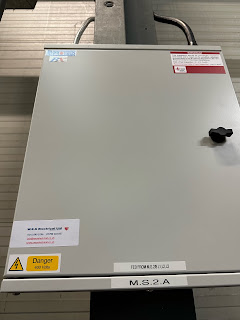The Dire Consequences of Ignoring Property Certifications: A Warning to Landlords
As a landlord, you hold a significant responsibility in ensuring the safety and compliance of your rental properties. While it might be tempting to cut corners or delay essential property certifications like Electrical Installation Condition Reports (EICRs) or Energy Performance Certificates (EPCs), doing so can have severe consequences. This blog post aims to shed light on the potential legal, financial, and ethical ramifications of neglecting these critical requirements. If you’re a landlord in the UK, especially in Glasgow, pay close attention—your liberty and livelihood could be at stake.
Understanding EICR Glasgow and EPC: The Basics
What is an EICR?
An Electrical Installation Condition Report (EICR) is a thorough inspection and testing of a property's electrical systems. It identifies any deficiencies or potential hazards, ensuring the safety of tenants. In the UK, it’s mandatory for landlords to obtain an EICR every five years or at the start of a new tenancy.
What is an EPC Glasgow?
An Energy Performance Certificate (EPC) provides a rating of a property's energy efficiency, from A (most efficient) to G (least efficient). It includes recommendations for improving energy efficiency and is required when renting out a property.
The Legal Obligations
EICR Legal Requirements
As of July 1, 2020, all private landlords in England are legally required to have the electrical installations in their properties inspected and tested by a qualified electrician at least every five years. A copy of the EICR must be provided to new tenants before they move in and to existing tenants within 28 days of the inspection.
EPC Legal Requirements
An EPC is required whenever a property is built, sold, or rented. The certificate is valid for 10 years, and landlords must provide a copy to potential tenants at the earliest opportunity. Properties must have a minimum rating of E; renting out properties with an F or G rating is illegal unless an exemption has been registered.
The Consequences of Non-Compliance
Financial Penalties
Failing to comply with EICR and EPC regulations can result in substantial fines:
- EICR Non-Compliance: Local authorities can impose fines up to £30,000 per breach. This can accumulate if multiple properties are non-compliant or if issues are not addressed promptly after being identified.
- EPC Non-Compliance: Landlords can face fines up to £5,000 for failing to provide an EPC or for renting out a property that does not meet the minimum energy efficiency standards.
Legal Action and Imprisonment
Ignoring these regulations doesn’t just hurt your wallet—it can also lead to severe legal repercussions:
- EICR-Related: Should an electrical fault cause harm or damage because of a neglected EICR, landlords can be prosecuted under health and safety laws. This could lead to a criminal record and even imprisonment for up to two years.
- EPC-Related: Persistent non-compliance with EPC regulations can also lead to prosecution. While jail time is less common for EPC violations, the risk of hefty fines and legal battles remains high.
The Ethical and Moral Responsibility
Beyond legal and financial consequences, landlords Glasgow have an ethical duty to ensure their properties are safe and energy-efficient. Neglecting these responsibilities not only endangers tenants’ lives but also contributes to broader environmental issues. Imagine the guilt and public backlash if a preventable electrical fire or health issue arose from your negligence.
Real-Life Horror Stories
Case Study: The Ignored EICR Glasgow
In 2019, a landlord in London faced a nightmare scenario. After failing to obtain an EICR, an electrical fire broke out in one of their properties, causing significant damage and injuring two tenants. The investigation revealed outdated wiring and other safety issues that an EICR would have flagged. The landlord faced a £20,000 fine and a suspended prison sentence, along with the shame and financial burden of rebuilding.
Case Study: The Costly EPC Glasgow Oversight
A Glasgow landlord ignored the EPC regulations, renting out a property with an F rating. Tenants complained of high energy bills and inadequate heating. When the local council intervened, the landlord was fined £4,000 and required to make costly energy efficiency upgrades. The negative publicity and tenant dissatisfaction further damaged the landlord’s reputation and business.
How to Ensure Compliance
Step-by-Step Guide
- Schedule Regular Inspections: Book EICR inspections every five years or at the start of new tenancies. Hire qualified and certified electricians to carry out the work.
- Obtain and Display EPCs: Ensure your property has a valid EPC with a rating of E or higher. Provide copies to potential and existing tenants promptly.
- Stay Informed: Keep up-to-date with changes in legislation. Attend landlord forums, subscribe to property management newsletters, and consult with legal experts to ensure compliance.
- Invest in Property Maintenance: Regularly maintain and upgrade your property’s electrical systems and energy efficiency features. This not only ensures compliance but also enhances property value and tenant satisfaction.
Conclusion
Ignoring property certification requirements like EICRs and EPCs is not just a legal oversight—it’s a dangerous gamble with serious repercussions. As a landlord, your priority should be the safety and well-being of your tenants. Non-compliance can lead to devastating financial penalties, legal battles, and even imprisonment. Don’t become a cautionary tale. Act now, get your properties certified, and ensure you meet all legal obligations. Your tenants, your bank account, and your conscience will thank you.




